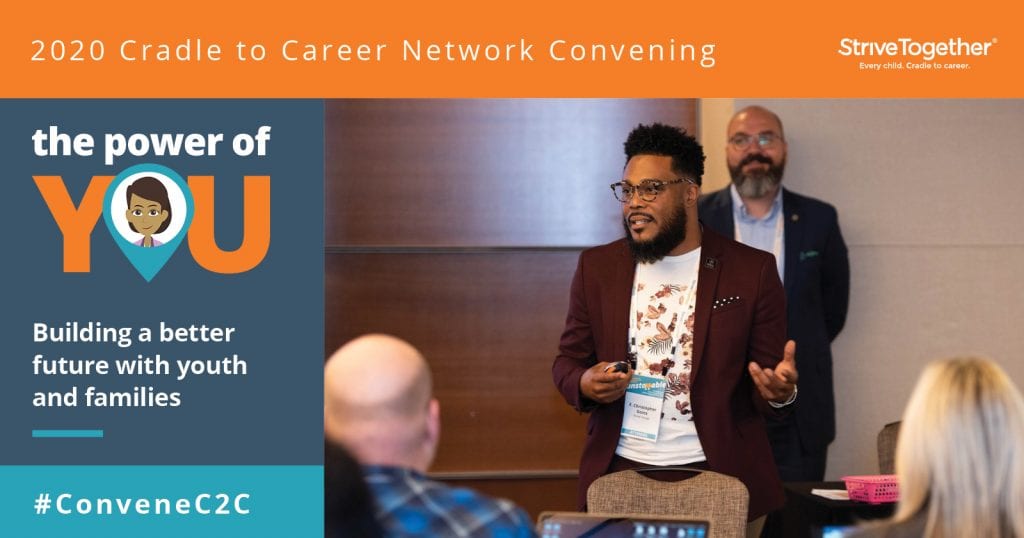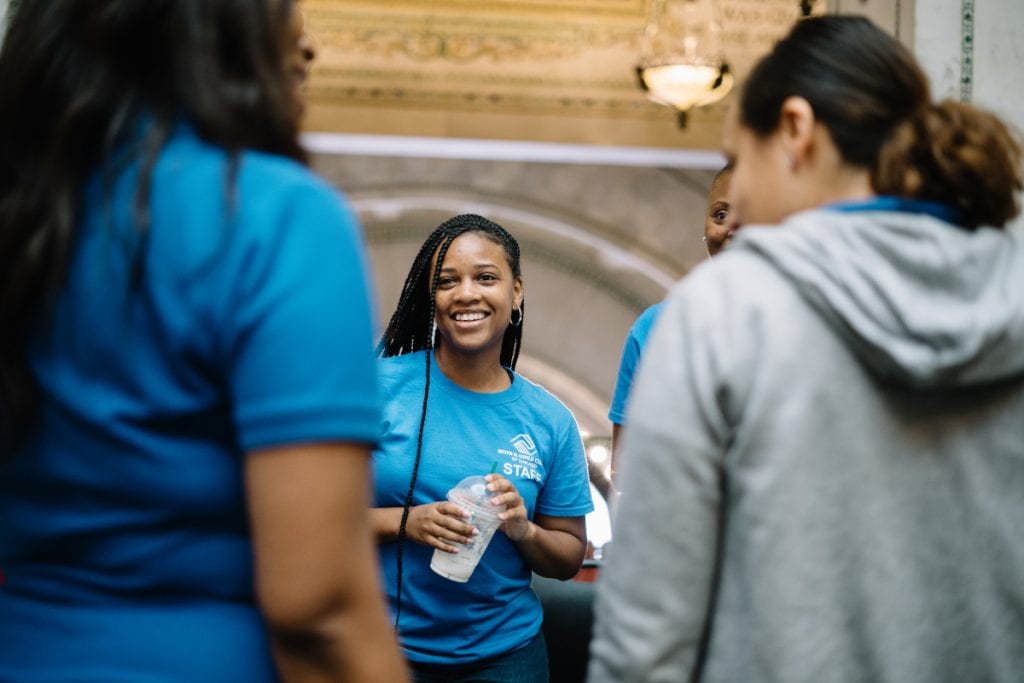
Since the earliest days in the collective impact movement, there has been a commonly repeated refrain: “We have to shift narratives. We have to change mindsets.” In 2020, there has been a shift in narratives and in mindsets
The country is waking up to systemic oppression and inequities. This summer, the top-selling books were focused on anti-racism. Companies demanded that we dismantle white supremacy. Communities declared racism a public health crisis. Local and national coalitions committed to equitable recoveries.
And as work offices closed and schools shifted to remote learning, we have realized that many structures and arrangements we have long held as “the way things are” can, in fact, be changed.
The time is now to move from talk to action.
We have the power to change the trajectory of our nation and our communities. We have the power to build systems that ensure every child and family thrives and succeeds. Here’s how:
Make equitable and just communities the ultimate goal. In March, StriveTogether’s Racial and Ethnic Equity Action Team published our Racial Equity Statement, which envisions a better future. A future that prioritizes equity, that centers youth in the redesign of systems and their own education. Where leaders, change networks and boards are representative of the community. Where policies upend systemic racism. Where Black-, Latinx-, Indigenous- and Asian-led movements hold resources and decision-making power. And where organizations and systems are accountable to the visions of community rather than grant deliverables or antiquated policies.

Fundamentally reimagine and transform systems. Building the future we envision requires going beyond incremental change. We must do more than tweak a system that was built on oppression.
Consider the phenomenon we call “summer slide” — when students lose some of their learning in reading or math during the three-month summer break when they aren’t using those skills. We create summer programs, encourage daily reading and recruit volunteer tutors. But have we asked ourselves what it might look like to not have a summer break? We have the power to change the schedule.
We have long held schools and classrooms as physical structures where teachers and scholars go, but have we asked ourselves what it might look like if classrooms had no walls? We have the power to build those classrooms. Boston Opportunity Agenda’s Equity Roundtable is designing that future alongside educators, parent and students.
Use our collective power. This movement was founded on the belief that we can do more together than we can apart. We must continue to build and leverage coalitions at the local, state and national level to advance our shared agendas. And we must authentically include youth and families in the redesign of systems.
Authentic codesign with community requires us to change mindsets about who can create solutions and whose expertise is valued. It requires us to build relationships and trust, to follow through on our commitments, and to acknowledge and heal previous harms. And it requires us to let go of some of our agendas in service of the community’s vision — to share decision-making and yield power.
Transformation takes time and it requires persistence and tenacity. We must acknowledge the journey is long, and we must take care of ourselves and our communities along the way. But ultimately, this is the time to create a future that is equitable and just. As Nikole Hannah-Jones states in her case for reparations, “If we are truly at the precipice of a transformative moment, the most tragic of outcomes would be that the demand be too timid and the resolution too small.” We have the power to rewrite history. It’s time to pick up the pen.





